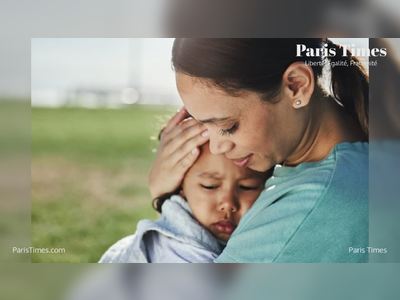France's Minister of Families Proposes Comprehensive Measures to Address Youth Violence and Support Parental Roles
Catherine Vautrin outlines initiatives including screen bans for young children, a new parental leave scheme, and increased mental health resources amid rising youth violence.
In the wake of a violent incident involving a 14-year-old student who attacked a young woman with a knife, Catherine Vautrin, France’s Minister of Families, has outlined a series of proposals aimed at addressing increasing youth violence and supporting family structures.
The incident, which occurred in a college where gendarmes were present, has raised concerns about the apparent desensitization to violence among adolescents.
Vautrin noted that professionals in health services have observed a notable rise in violent behavior in youth since the COVID-19 pandemic, prompting a discussion about the influence of social media on these actions.
She emphasized the need for preventive measures that not only encompass security aspects but also mental health interventions to recognize warning signs in struggling adolescents.
A significant objective Vautrin has presented is the recruitment of 600 psychiatry interns by 2027 to bolster mental health resources.
Access to mental health services is hampered by a shortage of trained professionals, leading to long waiting times for urgent consultations.
Vautrin highlighted the parallel need for improved training within the educational system to better equip school nurses and staff in identifying mental health issues among students.
In addressing the role of families, the government introduced a law aimed at holding parents accountable for their children’s wellbeing.
This legislative move includes provisions for a new legal framework that allows minors over the age of 16 who commit serious crimes to be judged as adults under certain circumstances.
Vautrin also proposed conditioning welfare benefits, such as the RSA (Active Solidarity Income), on parental involvement in their children’s lives, particularly in cases where children are under the care of social services.
In an effort to combat the influences of screens on young minds, Vautrin has advocated for a total ban on screen exposure for children under three years old, and supports an initiative to restrict social media access for those under 15 years of age.
This proposal aims to protect children from potentially harmful content online, which Vautrin argues can lead to radicalization and perpetuate violent behaviors.
To facilitate this, she plans to implement regulatory measures for early childhood care facilities.
Additionally, Vautrin is addressing the issues surrounding the family dynamics in contemporary France, where demographic decline has been noted amidst a high desire for children.
She aims to ease parents' responsibilities regarding childcare, having revised aid policies for accessing childcare services.
Upcoming reforms will alter the existing structure of financial support for families, particularly focusing on single-parent households and situations requiring flexible childcare arrangements.
The current parental leave system, which consists of maternity leave of sixteen weeks and limited paternal leave, is also on Vautrin’s agenda for reform.
She proposes the introduction of a 'birth leave' that would be better compensated and shared between parents, allowing for longer time spent with newborns.
This amendment aims to provide families with more options to balance work and parental duties effectively.
The incident, which occurred in a college where gendarmes were present, has raised concerns about the apparent desensitization to violence among adolescents.
Vautrin noted that professionals in health services have observed a notable rise in violent behavior in youth since the COVID-19 pandemic, prompting a discussion about the influence of social media on these actions.
She emphasized the need for preventive measures that not only encompass security aspects but also mental health interventions to recognize warning signs in struggling adolescents.
A significant objective Vautrin has presented is the recruitment of 600 psychiatry interns by 2027 to bolster mental health resources.
Access to mental health services is hampered by a shortage of trained professionals, leading to long waiting times for urgent consultations.
Vautrin highlighted the parallel need for improved training within the educational system to better equip school nurses and staff in identifying mental health issues among students.
In addressing the role of families, the government introduced a law aimed at holding parents accountable for their children’s wellbeing.
This legislative move includes provisions for a new legal framework that allows minors over the age of 16 who commit serious crimes to be judged as adults under certain circumstances.
Vautrin also proposed conditioning welfare benefits, such as the RSA (Active Solidarity Income), on parental involvement in their children’s lives, particularly in cases where children are under the care of social services.
In an effort to combat the influences of screens on young minds, Vautrin has advocated for a total ban on screen exposure for children under three years old, and supports an initiative to restrict social media access for those under 15 years of age.
This proposal aims to protect children from potentially harmful content online, which Vautrin argues can lead to radicalization and perpetuate violent behaviors.
To facilitate this, she plans to implement regulatory measures for early childhood care facilities.
Additionally, Vautrin is addressing the issues surrounding the family dynamics in contemporary France, where demographic decline has been noted amidst a high desire for children.
She aims to ease parents' responsibilities regarding childcare, having revised aid policies for accessing childcare services.
Upcoming reforms will alter the existing structure of financial support for families, particularly focusing on single-parent households and situations requiring flexible childcare arrangements.
The current parental leave system, which consists of maternity leave of sixteen weeks and limited paternal leave, is also on Vautrin’s agenda for reform.
She proposes the introduction of a 'birth leave' that would be better compensated and shared between parents, allowing for longer time spent with newborns.
This amendment aims to provide families with more options to balance work and parental duties effectively.











